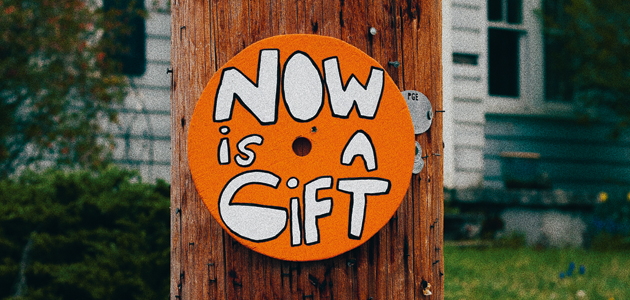‘If we are to live in the “now”, what do we do with those two bookends, past and future?’
Thought for the week: Tony Tucker has a tense moment

‘He who kisses the joy as it flies, Lives in eternity’s sunrise’ William Blake.
Blake the visionary captures a thought that is much with us at the present time. In the Covid crisis we have, of necessity, found ourselves detached from our normal daily round. In an effort to find a positive response to our changed circumstances some have advocated that we ask ourselves to ‘live in the moment’.
For many it has been good advice. During enforced isolation people speak of hearing what has gone unheard before – birdsong, the movement of the wind through trees – and of seeing what is always there but has gone unnoticed – that old elm tree, the passing blossom, a lone buzzard with a transcendent gracefulness turning and turning again as it rides a thermal. In our daily lives we often listen without hearing and look without seeing, so attentiveness of this kind can be an entirely enriching experience.
‘Being in the moment’ has in part come to our thinking as a result of the ‘mindfulness’ movement – an abridged, westernised version of Buddhist thought and practice. Some Buddhists would point out that it requires years of effort to ‘live in the now’ – to still the relentlessly restless mind – so perhaps we should, at the very least, tread carefully around this idea.
For me, however, a more complex issue arises over the question of our experience of time. If we are to live in the ‘now’, what do we do with those two bookends, past and future? Do we slough off the past because it is irrecoverable? Or deny the future as non-existent?
Certainly being held captive by one’s past, or reaching out to an imagined future at the cost of a lived present, is unhealthy. The author William Faulkner wrote that ‘The past is not dead, it is not even past’. We are our past, an embodied past. Of course we can rewrite, obscure or forget it. But it reaches into our present, and into our future. Life is a succession of moments. But not so existence. Human existence is unique in that we are always our own possibility. A stone has no future. It simply is. Organic life – the natural world, the creatures around us – has growth and development, but only within a biologically-determined lifecycle. To be human is always to be in the throw.
A painter makes a mark entirely in the moment, yet even in that moment the brushstroke is charged with possibility. Each stroke is a stepping stone to the next and an opening into the fullest realisation of the work at hand. We alone are what we might be, both being and becoming. Past, present and future.
You need to login to read subscriber-only content and/or comment on articles.
